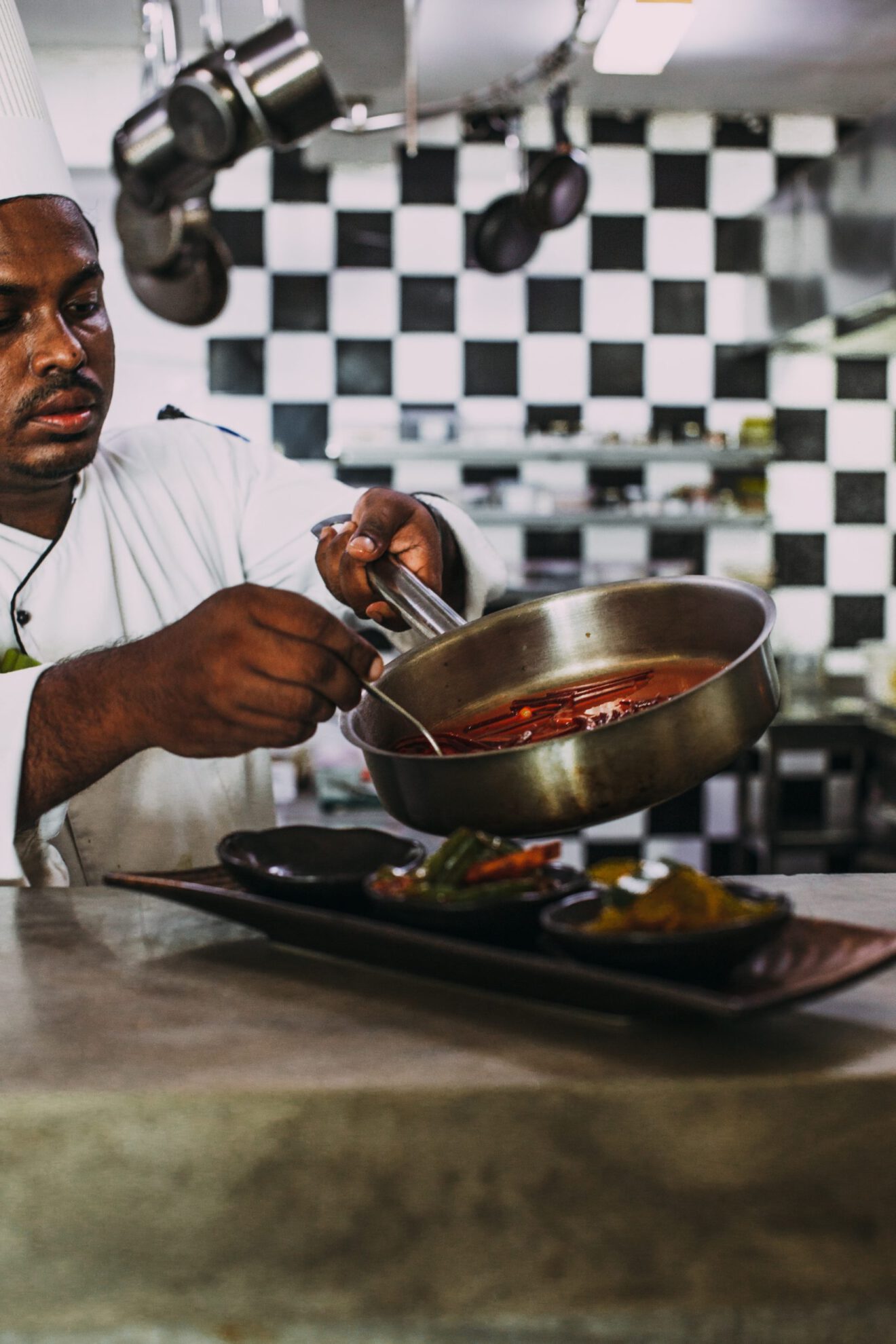Sign up for ProChef SmartBrief today, free.
Many of the issues that mattered most to chefs and other culinary professionals this past year will continue to shape the culinary industry in 2023, according to faculty members at the Culinary Institute of America. Liana Wood, a lecturing instructor on business management, and liberal arts Professor Willa Zhen, PhD, discuss how increased focus on sustainability and re-examining workplace values present opportunities for change in the year to come. They also reflect on the best bites they enjoyed in 2022 – from home cooking made with love to an under-the-radar regional barbecue style.
What events, trends and movements had the greatest impact on the culinary industry in 2022, and what are the major factors that you predict will shape the industry in 2023?

Liana Wood: In reflection on 2022 and looking forward to 2023, I feel that we’ve seen an increased awareness around sustainability and the impact we have on our environment and our food systems. Throughout the year, I have read and viewed countless publications speaking to environmental awareness and the need for sustainable practices. Topics that come to mind and have trended include regenerative and agroecological farming, plant-forward menu and product development, citizen education and awareness, and overall environmental and animal welfare.
With this, it has been inspiring to see that chefs, scientists, farmers, legislators, etc., are working together to develop conscientious practices, products, and policies that will carry us into the future. With the global population forecasted to reach almost 10 billion in the next 30 years, there will be a consistent need to find ways to meet food production demands that are considerate and kind to the planet. As a teacher, the topic of sustainability is part of the conversation in nearly all classes as this is an important subject for our students. Going into 2023, I feel that the focus on our food systems and sustainability will continue to be a priority and one that I’m excited to explore and contemplate in my courses.

Willa Zhen: Inflation and the on-going effects of the COVID-19 pandemic continue to impact the culinary industry. It’s an uncomfortable thing to talk about, but the reality is we’re going to be living with the impacts for a long time. The high costs of rent, fuel, food and everything else make an already tough industry even tougher to be in. Food businesses continue to struggle with attracting and keeping talent. Workers have been pushing for fair wages for their work and are demanding that employers do better in terms of working conditions. There’s also the tremendous mental health impact of being frontline workers serving the public.
This can feel like doom and gloom. But we can also take this as a moment to innovate. It’s been a good time to ask, ‘What’s next? How can we do better? How might we do more with what feels like less?’ Many food businesses are looking at their values and shifting how they do things.
Many in the culinary industry are stepping back to say they don’t have to be everything to everyone. Businesses are trimming menus to focus on what they’re good at instead of offering everything under the sun. Many businesses are taking a step back to think about the sustainability of their business models. Owners and operators are less afraid to take days off, to acknowledge the importance of mental health, and to raise prices so they can pay farmers, vendors, and employees fair wages. Of course, this hasn’t happened everywhere. But what used to be whispered in walk-in fridges have now become talking points across the industry.
What is the best thing you ate in 2022?
LW: The best thing I ate in 2022 was a plate of my Baba’s pierogies. Every week for over 80 years she was in her kitchen making pierogi and they’ve always been a favorite! She would spend hours making the dough, fillings and caramelized onion butter sauce and then hand rolling, cutting, and forming hundreds of individual pierogi to make up packages for her family and friends. We never leave her house without eating pierogi and taking dozens home! You can feel and taste the love and care in each bite!
WZ: Roasted chicken with fish sauce butter. The recipe is from Eric Kim of the New York Times. It is the most magical sauce because it is rich, savory and so delicious. It is a surprise combination because most people wouldn’t think to pair fish sauce with butter. I served my dish with a light green salad and crusty bread. I ended up scooping every last drop of the sauce because it is that good. It’s a perfect weeknight dish, and it’s also the type of dish that would impress your dinner party guests.
The other surprise hit was Alabama-style barbecue. It was completely new to me and so different from all the vinegar and ketchup-based sauces that dominate barbecue. This style uses a mayonnaise-based white barbecue sauce that’s slathered all over a smoked chicken. It’s a shame this style of barbecue doesn’t make it far beyond state lines. I can see why Alabamans want to keep it all to themselves!
Read more like this from SmartBrief:
- How chefs can reclaim the past, craft the future of Black foodways
- SmartSummit: How chefs and restaurants are working toward a more sustainable food system
- Personal, planetary health drive appetite for plant-based foods
_____________________________________
If you liked this article, sign up for SmartBrief’s free email newsletter from The Culinary Institute of America. It’s among SmartBrief’s more than 250 industry-focused newsletters.
